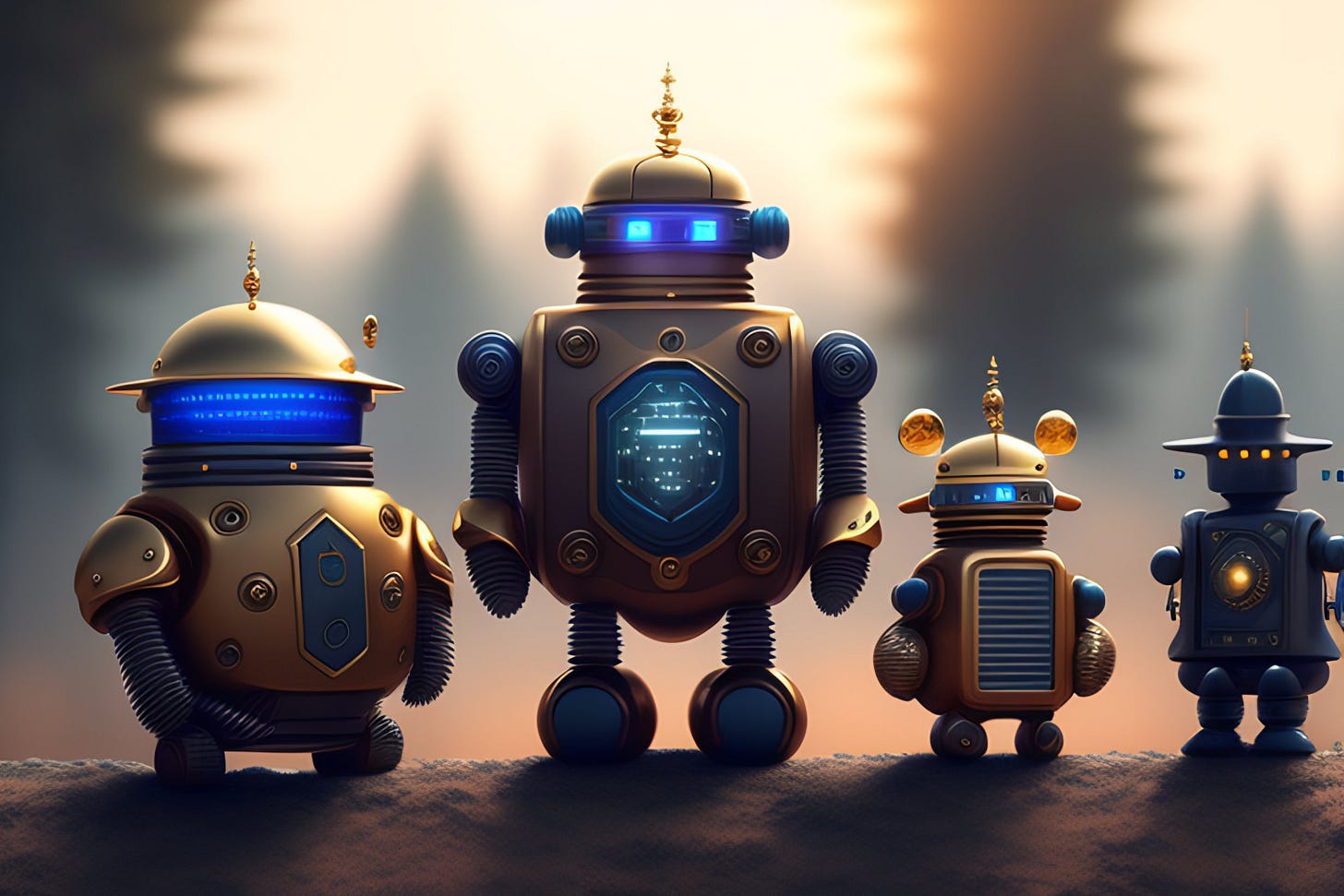The Future of AI: One Ring to Rule Them All or a Symphony of Specialists?
Exploring the Merits and Challenges of the Super AI and Specialized Agents thesis
As we stand at the cusp of a new era of artificial intelligence, one of the most pressing questions we face is how the AI landscape will evolve. Will we see the rise of one super AI agent e.g. OpenAI GPT-10 that excels at all tasks, or will we rely on a network of specialized AI agents, orchestrated by a human or an orchestrator LLM agent? In this article, we will explore the merits and challenges of each approach and argue for the more likely future.
The Super AI Agent Hypothesis
Proponents of a single, all-powerful AI agent believe that this entity will be capable of handling any task, regardless of its complexity or domain. The primary advantage of this approach is simplicity: users would only need to interact with one AI agent through a chat interface, allowing them to access a vast range of capabilities without the need to juggle multiple tools or interfaces.
However, there are several significant challenges to this hypothesis:
Technical Limitations: Creating an AI agent that excels at every possible task requires immense computational power and highly advanced algorithms. While we continue to make progress in these areas, it is uncertain whether we will ever reach a point where a single AI can truly master all domains.
Data Access: Proprietary data treasures offer vast amounts of valuable information that can help AI agents learn, adapt, and excel in their respective domains. Companies with access to proprietary data can leverage this information to create specialized AI agents with superior performance in certain domains.
Decentralization and Redundancy: Relying on a single Super AI Agent for all tasks poses risks related to system failures or vulnerabilities, including the potential for monopolistic control. Decentralizing AI capabilities across multiple specialized agents can provide redundancy, reduce single points of failure, and minimize the impact of potential attacks or errors.
The Specialized AI Agent Hypothesis
The alternative hypothesis posits a future where numerous AI agents, each with their own specialized skill sets, work together in a decentralized manner. These agents would be orchestrated by a human or an LLM agent, which would serve as the primary interface between the user and the specialized AI agents.
This approach offers several advantages:
Division of Labor: By focusing on specific tasks or domains, specialized AI agents can become experts in their respective fields, providing more accurate and efficient solutions than a generalized AI agent.
Scalability: As new tasks and domains emerge, it is easier to develop new specialized AI agents or improve existing ones, rather than attempting to continually update a single super AI agent to accommodate all areas of expertise.
Flexibility: A network of specialized AI agents allows for a more adaptable AI ecosystem, where individual agents can be easily replaced or updated as technology advances.
However, the specialized AI agent hypothesis is not without its challenges:
Orchestration: Managing a network of specialized AI agents requires a more sophisticated orchestration system, which may be more difficult for users to navigate compared to a single AI agent interface.
Interoperability: Ensuring seamless collaboration between specialized AI agents requires robust communication protocols and data-sharing mechanisms, which may prove challenging to develop and maintain.
The More Likely Future: A Symphony of Specialized AI Agents
While the idea of a super AI agent is enticing in its simplicity, the technical limitations and scalability concerns make it less likely to be realized in the foreseeable future. On the other hand, the specialized AI agent hypothesis aligns more closely with the current trajectory of AI development and has a greater potential for scalability and adaptability.
In this AI future, humans or LLM agents would orchestrate networks of specialized AI agents, harnessing their unique strengths to tackle complex, multifaceted problems. This approach may involve a higher degree of complexity, but it offers a more resilient, flexible, and scalable AI ecosystem that can evolve with our ever-changing world.
Ultimately, embracing the specialized AI agent hypothesis allows us to leverage the full potential of AI, transforming it into a powerful tool that can enhance human capabilities and address the challenges of the 21st century.



